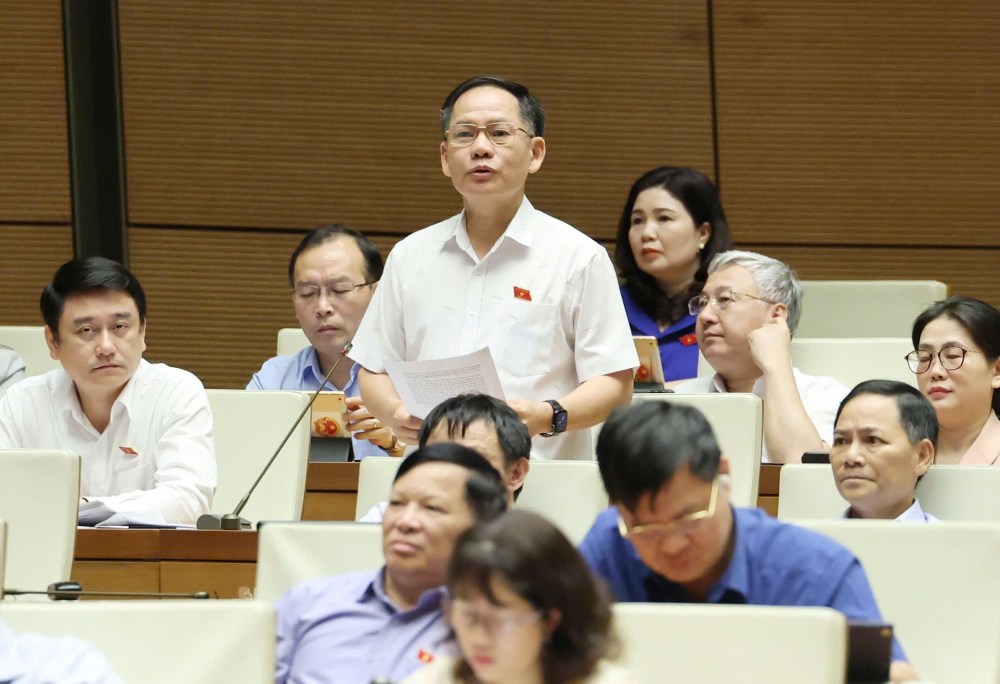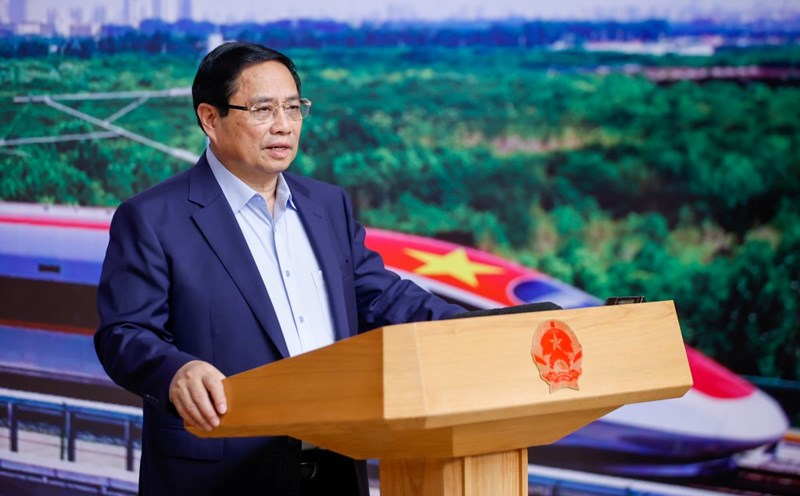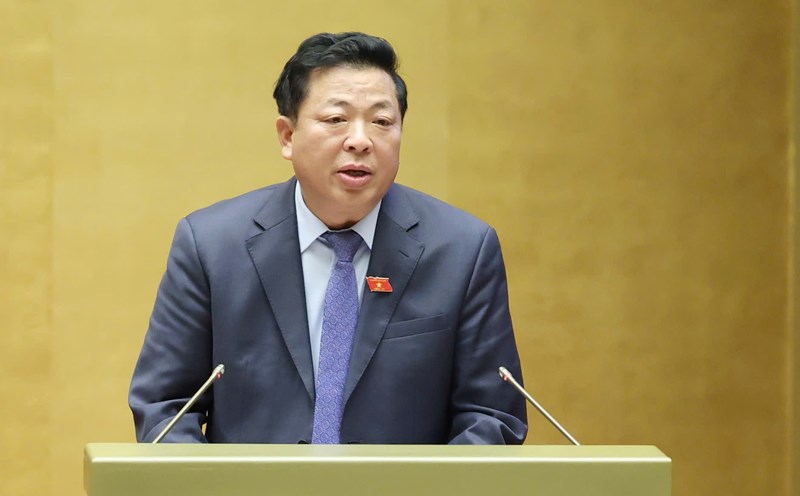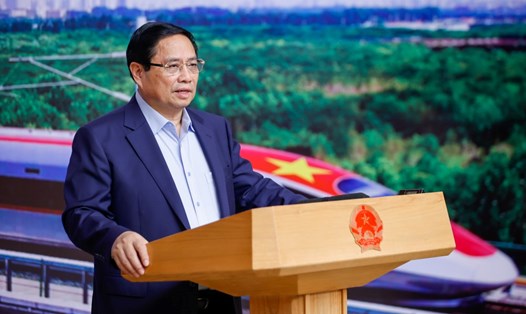On the afternoon of June 18, the National Assembly discussed in the hall the draft Law on Railway (amended).
Delegate Hoang Van Cuong (Hanoi Delegation) said that the draft law stipulates exemption from import tax for railway goods that cannot be produced domestically.
According to the delegate, in reality, we do not have a railway industry, so most products serving the railway industry cannot be produced domestically.
If such regulations are issued, it is very likely that businesses that are placed in order will import products from abroad, even hire to produce components and then assemble them, which will destroy the goal of developing the railway industry.
Therefore, the delegate proposed to clearly stipulate that products, goods, services, including components, must not be imported to be assembled into goods and services on the list of goods and services assigned by the state or ordered for domestic enterprises to produce.
Regarding the regulation on encouraging organizations and individuals to participate in investing in railway projects using non-state capital, according to the delegate, this is a very correct policy.
However, the draft law only stipulates the designation of bids for investors who self- propose projects or railway projects invested in the form of public-private partnership (PPP).
As for railway projects expected to be invested in by public investment with State capital, such as the North-South high-speed railway project, there is no mechanism for private investors to participate.
Regarding urban development according to the TOD model, the delegate agreed with the regulation assigning the provincial People's Committee to organize the preparation, appraisal and approval, and adjustment of urban development area planning according to the traffic orientation (TOD) for national railway lines passing through the locality.
At the same time, the local People's Council was assigned to use the budget to carry out compensation, site clearance, and create a clean land fund around the TOD area for auction and collection.
However, the draft law stipulates that for national railway projects, the People's Committees at the provincial level with railway projects passing through have the right to appoint investors to build railways to implement the entire TOD urban development project.
Thus, any investor who builds a railway will always implement TOD projects, which can lead to a situation where investors propose to build a railway but in fact, developing a TOD project is the main goal.
Therefore, the delegate suggested that it is necessary to regulate the TOD part in addition to railway projects that must be invested by the state and then bid and auctioned.
If you want to prioritize investors in railway construction, you can add a regulation that investors implementing railway projects will be given priority during the bidding and auction of TOD projects.

Delegate Tran Dinh Gia (Ha Tinh delegation) gave an example during a survey on the Cat Linh - Ha Dong railway line a week ago, he found that the economic efficiency of this route was very high.
However, connecting infrastructure, especially private parking lots and transit points, is still very inadequate. Therefore, it is very necessary to add a private parking lot to the definition of "connecting technical infrastructure works".
In the preferential policy to develop the railway industry, the delegate of Ha Tinh proposed adding a subsidy policy for public passenger transport by urban rail.
Without subsidies, this railway line will have difficulty competing with other means of transport. Therefore, subsidies are an important policy that needs to be included in the law to promote the effectiveness of urban railways.











